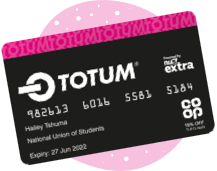Teaching Assistant Courses
Join thousands of UK students who trust De Montfort College for their learning.
Our home study NCFE Teaching Assistant courses provide exactly the same government-regulated qualifications as traditional, attendance-based colleges.
![]()
![]()
NCFE Level 3 Teaching Assistant Award
Government Regulated Qualification
Great if you’re not yet working in a school and need a government qualification to work as a Level 3 T.A.
Enrol for £295 
0% Payment Option
NCFE Level 3 Teaching Assistant Certificate
Government Regulated Qualification
This Level 3 Certificate course requires a school placement as it includes practical assessments in the classroom.
Enrol for £495 
0% Payment Option
NCFE Level 3 Teaching Assistant Diploma
Government Regulated Qualification
This Level 3 Diploma course includes working with special needs (SEN) and bilingual children
Enrol for £795 
0% Payment Option
NCFE Level 4 HLTA Teaching Assistant Certificate
Government Regulated Qualification
This Level 4 HLTA Certificate course also includes practical assessments in the classroom.
Enrol for £545 
0% Payment Option
NCFE Level 4 Supporting Special Needs
NCFE Accredited Qualification
This Level 4 course covers the responsibility of the Special Educational Needs Coordinator (SENCo).
Enrol for £355 
0% Payment Option
NCFE Level 1 Teaching Assistant Award
Government Regulated Qualification
This Level 1 course is the easiest way to gain a genuine qualification to become a Teaching Assistant.
Enrol for £295 
0% Payment Option
NCFE Level 2 Teaching Assistant Award
Government Regulated Qualification
Ideal for beginners who are looking to start a career as a teaching assistant.
Enrol for £299 
0% Payment Option
NCFE Level 2 Teaching Assistant Certificate
Government Regulated Qualification
This course includes classroom-based assessments and requires a school placement.
Enrol for £399 
0% Payment Option
Teaching Assistant Level 3 CPD Course
CPD Endorsed Course
Our Level 3 study guide is the perfect accompaniment for passing the Level 3 NCFE Teaching Assistant course.
Enrol for £19.99 
Easy Payment Option

Early Years and Childcare Courses
Our early years courses cover working with children from birth to 5 years in nurseries, childcare and nannying
NCFE Level 2 Award in Babysitting
Government Regulated Qualification
Great if you need a government qualification to start working as a Babysitter.
Enrol for £395 
0% Payment Option
NCFE Level 2 Certificate in Mental Health
Government Regulated Qualification
The perfect course if you want to help children and young people with mental health problems.
Enrol for £390 
0% Payment Option
NCFE Level 3 Award in Childcare and Education
Government Regulated Qualification
Great if you need a government qualification to start working in the Early Years sector.
Enrol for £495 
0% Payment Option
NCFE Level 3 Work in Home Based Childcare
Government Regulated Qualification
This NCFE accredited course gives you a government qualification to start working as a home-based child carer.
Enrol for £495 
0% Payment Option
Level 3 Award Nanny Home Based Childcare
Government Regulated Qualification
Gives you a government qualification to start working as a home-based child carer.
Enrol for £365 
0% Payment Option
NCFE Level 4 Supporting Special Needs
NCFE Accredited Qualification
This Level 4 course covers the responsibility of the Special Educational Needs Coordinator (SENCo).
Enrol for £355 
0% Payment Option
CPD Training 
Our CPD courses help you learn something new, refresh your existing knowledge, and keep up-to-date
Teaching Assistant Level 3 CPD Course
CPD Endorsed Course
Our Level 3 study guide is the perfect accompaniment for passing the Level 3 NCFE Teaching Assistant course.
Enrol for £19.99 
Easy Payment Option
Level 3 Health and Safety Awareness Course – CPD
CPD Endorsed Course
Gain the knowledge and understanding of health and safety in the workplace. This is a CPD Level 3 qualification.
Enrol for £29.99 
Easy Payment Option
Interview Skills and CV Writing Course – CPD
CPD Endorsed Course
Learn all the know-how to impress at interviews and create standout CVs. Let’s get you prepped for success!
Enrol for £19.99 
Easy Payment Option
Need help choosing the right course?
Call us on 0345 652 0098

NUS Student Card!
You’ll be eligible to order your NUS Totum student discount card when you enrol on one of our courses.

Amazing Support
From start to finish, our approachable tutors will be on hand to help you with your course.
About our online Teaching Assistant courses
Great news for anyone looking to become a Teaching Assistant! Our NCFE courses are fully accredited, which means you’ll earn a recognised RQF government qualification when you complete them. And guess what? Since we’re an online college, you can sign up right now and start learning straight away, all from the comfort of your home. Exciting, right? Let’s get your journey started today!

RQF Qualifications
RQF courses are the official government qualifications all schools and nurseries require. Our NCFE courses are fully regulated by the government examinations department OFQUAL, and upon successful completion, you’ll receive a fully recognised RQF qualification.


Award vs. Certificate
We provide two types of courses depending if you’re working in a school or nursery; the Award and Certificate. The Award courses are for people not yet working in a placement, and the Certificate courses are for those who already work or volunteer in their placements.

Need help choosing the best course?
Call us on 0345 652 0098

Study online from home
We deliver both our Teaching Assistant and Early Years courses as online or paper-based courses. You’ll get instant access to your course as soon as you enrol – there’s no waiting to get started. If you prefer paper-based study over online learning, you have the option to order the printed version of the course.

1:1 tutor support
When you enrol with us, you’ll be assigned a friendly, dedicated tutor with 1:1 access via phone and email. Your tutor will be on-hand to helpfully guide you through the course and prepare you for your assignments with full feedback all the way. Our tutors are experts, passionate about their subjects and have a wealth of experience in getting you qualified as quickly and easily as possible.

Flexible course payment options
We offer flexible payment options on all our Teaching Assistant and Early Years courses. Spread the cost with monthly interest-free payments or pay in full when enrolling. SIMPLE ENROLMENT – NO CREDIT CHECK REQUIRED.
Frequently asked questions
We’ve put together a list of some common questions we’re asked about our courses. If you still have any questions, please don’t hesitate to reach out or chat – we’ll be delighted to help you.
Yes, all awarding bodies are the same and the qualifications they accredit are the same. This is because the standards and qualifications are written by sector skills councils and approved by Ofqual. All awarding bodies are regulated by Ofqual including CACHE, NCFE, City & Guilds, Edexcel, OCR etc. The qualification is no different and the certificate is equally recognised no matter who it is accredited by.
In 1981, the Northern Advisory Council for Further Education (NACFE), which was established in 1947 to co-ordinate further education provision throughout the nine LEAs, merged with the NCTEC to become the Northern Council for Further Education.
When the further education sector was incorporated (made independent of the government) in the early 1990s the company felt the old name was incompatible with their new national focus and has since then been identified simply as NCFE with the letters no longer being an acronym.
If you’re already working in a school we recommend our Teaching Assistant: Supporting Teaching and Learning in Schools Certificate RQF Level 3 course. It has the requirement of 100 hours practical assessment in the classroom so you must be working in a school between 3-6 hours per week to be able to enrol on it. This course is an NCFE CACHE Accredited course and gains 35 credits. You’ll need to complete a mix of written assignments and practical assessments for this course and you cannot pass this course without completing the required observational tasks. We do not have the facilities to offer any work placements so you’ll need to find your own employment within a school.
If you don’t yet have a work placement, you can still enrol on our Level 3 Award in Supporting Teaching and Learning in Schools course and upgrade your course as soon as you’re ready. We give you all the extra modules from the 35 credit work-placement course above so you’re fully prepared if ever you do decide to upgrade. All your credits can easily be transferred to the work-placement course, meaning there’s no need to repeat any work you’ve already completed. Please note that there are additional fees if you wish to upgrade your course.
If you’d like to upgrade your course at any-time, please call our education team on 0345 652 0098 and they’ll be happy to help you.
We run a continuous enrolment system for our Teaching Assistant courses which means enrolments are open every day of the year. As soon as you enrol you’ll get instant access to the course materials via our online learning management system.
No, you are continually assessed throughout your course by written assignments. There are mandatory assignments that need to completed and passed to gain your level 3 certificate.
Tutor feedback is provided after each assignment and if any help is needed to pass an assignment, your tutor will be on hand for you to get in touch with. Once you have passed your assignments, that’s it – there’s no big final exam.
No, you do not need a computer to complete this course. We give you the option to receive the printed book form of your course, so if you don’t have a computer or internet access you can still study with us.
You can choose to complete your assignments by handwriting or by computer, submitting your assignments either by paper or e-mail. We find some people prefer to handwrite their work while others prefer to use e-mail. Generally, e-mail is the quicker and safer option as you don’t have to wait for Royal Mail to deliver your work and there’s less chance of it going missing. The majority of colleges are unable to offer the dual submission service we offer as it’s a lot easier for them not to have to deal with assignments that arrive by post.
Yes, we run a small number of classroom-based courses around the country. Please call our educational team on 0203 012 0098 for further information.
You will need to request an RMA (Return Merchandise Authorisation) for your returned course and refund. To request your RMA number please email support@dmc.ac or alternatively call our student support team on 0345 652 0098 (local rate including mobiles). You can view our full refund policy here:- https://dmc.ac/refund-policy/
We can invoice your school directly for easy same day enrolment, providing you with the quickest route to an OFQUAL qualification. For same-day enrolment simply fill in this form and we’ll take care of everything else for you. Alternatively please call our education team on 0203 012 0098 and they’ll be happy to help get your staff enrolled quickly and easily.
We offer a continuous enrolment system, letting you enrol whenever you are ready. To enrol by telephone please call the college on 0203 012 0098 between 9am and 4pm Monday to Friday. You may also enrol online 24 hours a day by clicking the enrol button to the right of your screen.
All of our courses run for a period between 6-12 months.
If you find you need some extra time, we will be happy to extend for a small additional fee.
As soon as your enrolment is complete you will have your own personal tutor who’s there to help as much as you may need them. The easiest way to contact your tutor is by telephoning them directly and they will be able to help you in real time, live on the telephone. If you prefer, you can contact them by e-mail and they will be more than happy to respond to your query.










